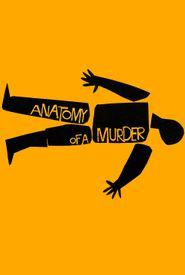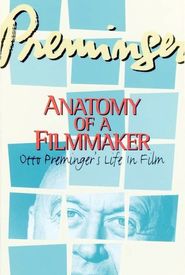Joseph Nye Welch, a renowned American lawyer, made a profound impact on the tumultuous era of McCarthyism, serving as the chief counsel for the United States Army during its high-profile investigation by Senator Joseph McCarthy's Senate Permanent Subcommittee on Investigations.
As the chief counsel, Welch played a pivotal role in the investigation, utilizing his exceptional legal skills and expertise to navigate the complex and often contentious proceedings.
With his extensive experience in the legal field, Welch was well-equipped to handle the intense scrutiny and pressure that came with representing the United States Army during the investigation.
Throughout the investigation, Welch demonstrated his unwavering commitment to upholding the principles of justice and upholding the integrity of the legal system.
As a result of his tireless efforts, Welch played a significant role in helping to expose the flaws and inaccuracies in Senator McCarthy's claims, ultimately contributing to a more nuanced understanding of the McCarthy era.
Welch's contributions to the investigation and his unwavering commitment to justice and integrity have cemented his place as a prominent figure in American legal history.
As a testament to his enduring legacy, Welch's work continues to inspire and influence generations of lawyers and legal professionals.
The Army-McCarthy hearings, a pivotal moment in American political annals, was a testament to the nation's unwavering commitment to transparency and accountability, as it brought to the forefront a most contentious and dramatic confrontation between two formidable figures, Welch and McCarthy, whose verbal sparring match would become etched in the collective memory of the American people.
Welch, as the chief counsel for the Army, was entrusted with the weighty responsibility of defending the institution's honor and integrity against the scathing accusations of Communist infiltration and espionage levelled by McCarthy, whose reputation as a zealous anti-communist crusader had already garnered widespread attention and notoriety.
As the hearings unfolded, the nation's attention was riveted on the televised proceedings, as Welch and McCarthy engaged in a series of fiery exchanges that would ultimately reveal the true extent of McCarthy's methods and motivations, leaving an indelible mark on the political landscape of the United States.
Joseph Raymond McCarthy's biography:
Joseph Raymond McCarthy was born on November 14, 1908, in Grand Chute, Wisconsin. He graduated from Marquette University Law School in 1935 and served in the United States Marine Corps Reserve from 1937 to 1945.
After World War II, McCarthy became a prominent figure in Wisconsin politics, serving as a district attorney and a member of the Wisconsin State Senate. In 1946, he was elected to the United States Senate, where he quickly gained notoriety for his accusations of Communist infiltration in the government and military.
McCarthy's accusations, which were often based on unsubstantiated claims and guilt by association, led to the blacklisting of many Americans and the destruction of their careers. His tactics were widely criticized, and his popularity began to wane in the late 1950s.
In 1954, McCarthy's career was effectively ended by the Army-McCarthy hearings, which revealed his reckless and irresponsible behavior. He died on May 2, 1957, at the age of 48, due to complications from lung cancer.
John Welch's tenure as chief counsel of the Senate Permanent Subcommittee on Investigations, a position he held from 1953 to 1955, was marked by a period of heightened political tension and anxiety in the United States, fueled by widespread concerns about the perceived threat of Communist infiltration and subversion.
As the chief counsel, Welch was responsible for leading the investigation into allegations of Communist activity within the United States government and society, a task that required him to navigate the complex and often contentious landscape of American politics during the early Cold War era.
Under Welch's guidance, the subcommittee conducted a series of high-profile hearings, during which he skillfully employed his expertise and poise under pressure to counter the aggressive questioning and personal attacks launched by Senator Joseph McCarthy, a prominent figure in the Red Scare.
Despite the challenging circumstances, Welch's reputation as a formidable and effective advocate grew significantly during his tenure as chief counsel, earning him widespread respect and admiration from his colleagues and the public alike.
Throughout his time in this role, Welch demonstrated a remarkable ability to remain composed and focused, even in the face of intense scrutiny and criticism, and his leadership played a crucial role in helping to shape the public discourse around the issue of Communist subversion and the role of government in addressing it.
Joseph Welch, a renowned lawyer, played a pivotal role in the Army-McCarthy hearings, utilizing his exceptional legal acumen to scrutinize Senator McCarthy's tactics and intentions. Through his remarkable legal expertise, Welch successfully challenged the Senator's dubious claims, thereby contributing significantly to the erosion of McCarthy's credibility and ultimately leading to his downfall.

























